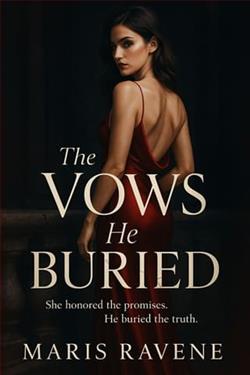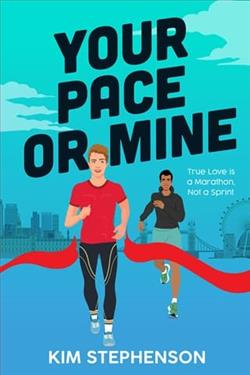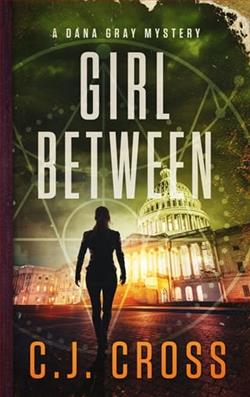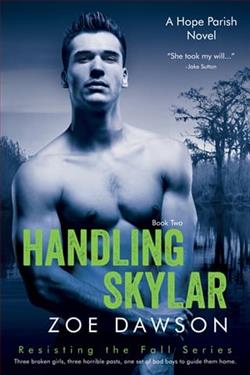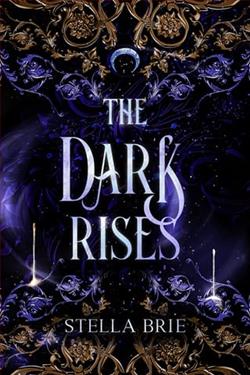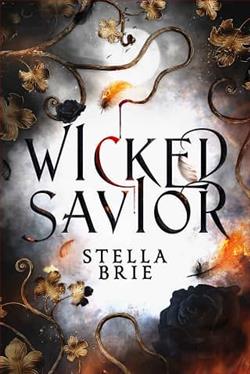Page 2 of Playworld
“You’re the first person I’ve told.”
Naomi shook her head in amazement.
“Is it wrong?” I asked.
“To be having…relations with her?” she said.
“To like older women so much.”
And while Naomi considered how to answer—struggling, through the fog of these details, to process my bald-faced lie—I leaned forward to kiss her. This was a ridiculous gesture, made more absurd by my open-mouthed, tongue-first nonchalance, plus my disregard for her status and our surroundings (the fact that she was married, for example, or that guests were standing five feet away). I briefly pressed my lips to hers. It’s possible she’d never moved so fast in her life, rocking back to laugh at my ludicrous bravado while simultaneously pressing her fingertips to my shoulder.
“Griffin,” she said, “you aresomething.”
I shrugged, then thanked her for the talk and went to go find my brother.
—
Oren was always worth seeking out at these parties, because he was a fearless explorer of other people’s rooms. Closed doors meant nothing to him. Closets were never off-limits. Bureaus begged to be opened, whether they belonged to strangers or to our parents, whose wall-length dresser he regularly raided with abandon. He’d found treasures there: rolls of quarters stacked like Lincoln Logs, reserved for the basement laundry machines but that we skimmed to playMissile Commandat Stanley’s Stationery Store; my father’s dog tags, their gunmetal stamped with risen letters like Braille and revealing his given name,Hertzberg.(When Dad became an actor, he’d changed it toHurt.) Buried beneath Mom’s underwear, Oren had also uncovered her diaphragm, waiting until I was present to pop its plastic container. He stretched its dome with his fingers to a near-porous transparency.
“I think it’s a yarmulke,” he theorized.
“For what,” I said, “the rain?” I sealed its ring over my lips and blew as hard as I could. “Plus,” I added after it failed to inflate, “Mom isn’t even Jewish.”
At the Barrs’ house, I found Oren in the twilit driveway with my father and Naomi’s husband, Sam Shah. One gull wing of his Bentley’s hood was raised so Oren could admire the engine. My father was already seated shotgun. When he spotted me, he made a hurry-up wave.
“Join us,” Sam said, clicking the hood’s panel back in place and walking toward the driver’s-side door. “We’re taking her for a spin.”
—
Sam Shah made a powerful impression standing beside his gorgeous machine. He was dark-skinned—Pakistani on his mother’s side, I’d learn later that year—with a head of luxuriant black hair that added at least an inch to his height. He was full-lipped, his fluffy mustache as dense as his brows, and his glasses had such thick lenses his eyes seemed to float in them. To use an expression from back then, his charisma wasserious.Chin up, he watched me as I approached and then extended his arm toward the back seat. I always thought that Mr. Shah’s clothes were fantastic. This evening’s blazer was a buttery chestnut tweed, his silk tie brilliantly colored. His loafers’ tassels looked like tiny squid dipped in expensive chocolate. Shoes to shirt, these materials seemed to gather the fading light to them, as did the Bentley’s oyster-gray paint.
“Everyone buckled up?” Sam asked. He pulled on a pair of leather driving gloves, perforated above the clasp, which, when he snapped closed, I noticed my father admiring. Sam started the car and the needles jumped. He eased the Bentley out of its space, but the moment we were on the road he gave it gas, and the engine sang.
Oren was thrilled. He immediately pulled down the tray table—an act I copied—admiring the molten grain of polished walnut. Oren leaned forward, looking over Sam’s shoulder to regard the dash. The white-on-black gauges had stenciled abbreviations, the car’s major operations adjusted by silver knobs that looked pleasurable to touch. The only visible sign of wear surrounded the ignition switch, the key having chipped away the veneer each time it had missed the slot, but to me such scarring was a sign of use and meant only one thing: Sam drove this careverywhere.
“What’s the make and model?” my father asked.
“This is a 1960 S2 Continental,” Sam said.
“It’s beautifully appointed,” my father said. He often made suchstatements in his baritone, and the usual effect was that his words somehow attained a solemn authority that masked their obviousness. Earlier, I’d overheard him talking to some of Elliott and Lynn’s guests. Of the Iran hostage crisis, he’d intoned, “It’s a very,verycomplex situation,” and his audience vigorously nodded their heads, as if by saying so he’d explained Middle Eastern geopolitics. But Sam had no reaction to his comment, and this made my father fidget more than usual. He ran his fingers along the door’s wood grain and then checked them for dust. He turned the radio on, off, and, after adjusting the dial, left it on, as if this werehiscar.
“Where’d you get it?” my father asked.
“On the Cape,” Sam said.
“It must’ve been expensive.”
“It was sitting, uncovered, in the owner’s driveway, turning into a hunk of rust.”
“A bargain, then,” my father observed.
Sam leaned toward him while keeping his eyes on the road. He lowered his voice conspiratorially. “The restoration was what really cost me.”
We’d made our way out of the residential part of Great Neck and onto a four-lane road. Freer now, Sam stepped on it again, and the car accelerated effortlessly.
My father pointed to the speedometer. “Ever gotten it up to two hundred?” he asked.
Oren, shielding his eyes, shook his head miserably. “Those are kilometers.”








